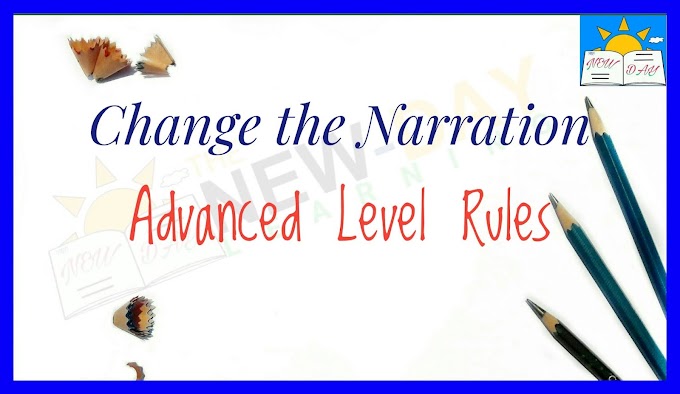Hi everyone, we are going to learn English grammar. We will be covering alphabets (vowels and consonants), word, sentence and types of sentences...
So, now let's begin -
Alphabet:-
There are 26 alphabet in English (A – Z), some of them are called vowels and others are consonants.Vowels:-
some alphabets can be pronounced without the help of other alphabets, they are known as vowels . Five vowels are among the English alphabets.E.g. - A E I O U .
Consonants:-
Consonants are the alphabets, which can only be pronounced with help of vowels.Words :-
A word is a group of letters or alphabets. But this group of alphabets should have a meaning.E.g.:- Dog, Lion, gun etc.
Often a single letter can make a word alone – 'I' , 'a'
Sentence :-
A sentence is a group of words that has a complete sense.Ex:- “Ram is a good boy”
“Who is he?”
Sentence can be of five types –
i) Assertive Sentence,
ii) Imperative Sentence,
iii) Interrogative Sentence,iv) Optative Sentence,
v) Exclamatory Sentences.
And each of these five types of sentences can be divided into two –
a) Affirmative and
b) negative .
i) Assertive Sentence :
=> This sort of sentence asserts something or describes about something.E.g - He gave me a pen.
Syntax :- Subject + verb + object + others.
As we mentioned that each of these sentences can be divided into two –
a) Affirmative and b) negative, it can also be like-
Affir.) She is a pretty girl.
Neg.) She is not an ugly girl.
ii) Imperative Sentence :
=> This sort of sentence denotes order, advice or request.Ex- Give me a glass of water. (Order)
This sentence is an example of imperative sentence because someone is ordered with it.
Similarly, "Please open the door" and "Study attentively" are the examples of imperative sentence as these are used for request and advice respectively.
Syntax :
The syntax is quite different. Like-
Verb + object + others
To compose a negative sentence add a don't at the beginning.
Note- Here the subject(s) is understood. The subject should usually be 'you'.
Affir.) Go there, Do the work etc.
Neg.) Don't run in the sun. Don't miss the class etc.
iii) Interrogative sentence:
=> By these type of sentence, anything is asked.E.g.- Who are you?
Is this a new dress? --
These two sentences are the examples of Interrogative sentence.
Syntax :-
WH words / auxiliary verbs / Do + subject + main verb + object / other +?.
Affir.) "Do you play football?", "How is your uncle now?"
Neg.) "Isn't it the same place?", "Don't you know the answer?"
Note- WH words are- what, who,whom, which, when, how etc.
Is this a new dress? --
These two sentences are the examples of Interrogative sentence.
Syntax :-
WH words / auxiliary verbs / Do + subject + main verb + object / other +?.
Affir.) "Do you play football?", "How is your uncle now?"
Neg.) "Isn't it the same place?", "Don't you know the answer?"
Note- WH words are- what, who,whom, which, when, how etc.
iv) Exclamatory Sentence:
=> Human emotions (which are delight, happiness, sorrow, disappointment,) are expressed through this type of sentence.Ex- Hurrah! We have won the match.
Syntax:
Exclamatory word / interjection + ! + Subject + verb + object + others.
In the example "Hurrah! We have won the match." , 'hurrah' is the exclamatory word or interjection.
Affir.) Hurrah! We have won the football match.
Neg.) Alas! The man couldn't survive.
v) Optative Sentence:
=> Someone's wish is expressed by these sort of sentences.Ex - May you live long.
By this sentence "May you live long.", we come to know Someone wishes another one to live long.
Syntax :
Auxiliary verb + Subject + verb + object or others.
Affir.) May your brother recover soon.
Neg.) May you don't fail.
Thank you...






%20(1).webp)


%20(1).webp)
0 Comments
Leave a comment